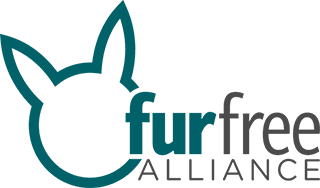
Leading animal protection organisations call for the permanent closure of fur farms in Europe
BRUSSELS – 8 DECEMBER 2020 – In the wake of COVID-19 outbreaks on mink farms throughout Europe – which have also laid bare the cruel conditions under which these animals are intensively confined – leading animal protection organisations today held an online conference to address the animal welfare and public health concerns associated with fur production. This event was organised in collaboration with the European Parliament’s Intergroup on the Welfare and Conservation of Animals.
Hosted by MEPs Anja Hazekamp (GUE/NGL), Niels Fuglsang (S&D) and Anna Deparnay-Grunenberg (Greens/EFA), this timely event brought together politicians and policymakers with prominent experts on animal welfare, veterinary epidemiology, NGOs and even a former fur industry insider to consider the animal welfare and disease risk problems related to exploiting fur-bearing species, such as mink and foxes, for their pelts. Recent footage from fur farm investigations was also screened to illustrate the inherent welfare problems involved in fur production.
Dutch MEP, Animal Welfare Intergroup President and Vice-Chair of the Parliament’s Environment Committee, Anja Hazekamp said:
“Confining wild animals in small wire cages for the trivial purpose of fur production should be consigned to the past. The horrific footage from Polish and Finnish fur farms, which we have seen at today’s meeting, are far from unique. We saw exactly the same kind of images of animal suffering on fur farms in the Netherlands over a quarter of a century ago when the political debate on banning fur production began. In the past days, the very last mink on Dutch farms were gassed to death and the cages stand empty after the industry phase-out was brought forward to eliminate potential coronavirus reservoirs. Fur farming is now over in my country. I look forward to the day when we can end the suffering of all animals on fur farms and see a completely fur-free Europe”
Dr Joanna Swabe, senior director of public affairs for Humane Society International/Europe, added:
“In the past months, the public has been confronted with the fact that fur farms are not only places of enormous animal suffering, but they can also act as virus factories. The living conditions on fur farms, which confine wild species at high densities and in close proximity, fail to satisfy the animals’ most basic welfare needs, leaving them highly stressed, which can lead to their immune systems being compromised. The outbreaks of the SARS-CoV-2 virus on fur farms have confronted us with the terrifying reality that fur factory farms create ideal conditions for diseases to propagate from one animal to another, and for viruses to mutate into forms potentially virulent to humans. We don’t need frivolous fur fashion. And we certainly don’t need these unnecessary reservoirs for coronaviruses. More than ever, it is time to make fur history.”
Reineke Hameleers, CEO, Eurogroup for Animals, noted:
“Given the urgency of the situation we believe it is high time for the Commission to show leadership and introduce measures to suspend fur farming across the EU. The potential risks of the SARS-CoV-2 virus further spreading and potentially mutating, pose serious threats across borders and require an EU approach. We trust that this proposal will be made at the forthcoming AgriFish Council meeting. In the longer term we believe the moment is ripe to phase out this sector once and for all. Several EU surveys have shown that the vast majority of EU citizens do not approve of fur farming and 11 EU countries have already banned or restricted this industry or are in the process of doing so. The pandemic has put the spotlight on the vulnerability of fur farming which end is long overdue.”

Photos taken on two fur farms in Finland as part of an investigation into the cruelty of fur farming with TOWIE’s Pete Wicks, Humane Society International, and Finnish animal protection organisation Oikeutta Elaimille
Facts
- Eight EU Member States have officially identified COVID-19 positive animals on mink farms: Denmark (289 farms), France (1 farm), Greece (12 farms), Italy (1 farm), Lithuania (1 farm), Netherlands (70 farms), Spain (1 farm), Sweden (13 farms).
- Researchers at the Medical University of Gdansk also found eight COVID-19 positive mink on a fur farm in Poland.
- SARS-CoV-2 virus has also been found in mink on 16 US fur farms and one Canadian mink farm.
- Mink-to-human transmission was first identified in the Netherlands through whole genome sequencing and has also been found in Denmark. The emergence of a new mink variant of the SARS-CoV-2 virus was detected in Denmark leading to fears that this COVID-19 mutation moving from mink to humans could jeopardise future vaccines. This variant had already been found in 12 people in northern Denmark.
- On 4th November 2020, the findings of the State Serum Institute led to Danish government announcing the radical step of culling all mink on the remaining fur farms and a temporary ban on mink production in the country.
- In 2013, the Netherlands adopted a ban on fur farming. The industry was due to be phased-out by 1st January 2024. However, the Dutch government forced an early shutdown of its mink industry due to continuing outbreaks of COVID-19 – despite the adoption of strict biosecurity measures and preventative culling of all affected mink herds – on its remaining fur farms.
- The Irish Department of Agriculture recommended that farmed mink in Ireland should be culled and restocking prohibited on its remaining three fur farms. A ban on fur farming was already pending.
- Fur farming has already been prohibited and/or is in the process of being phased-out in various EU Member States, such as Austria, Czech Republic, Croatia, Slovenia, Slovakia, the Netherlands, Luxembourg and Belgium. It is also banned in the United Kingdom.
- Legislative proposals to ban fur farming are currently also under consideration, or have been announced, in 6 countries including Poland, Lithuania, France, Ireland, Bulgaria and Estonia.
- In addition to these fur farming bans and industry phase-outs, Germany adopted stricter regulations, which have effectively eliminated the breeding of all animals for fur; Sweden similarly eliminated fox and chinchilla production in this way. Denmark has also prohibited and is phasing out the breeding of foxes on animal welfare grounds.
- Hungary has also just announced a ban on mink, fox, ferret and coypu production as a precautionary measure due to animal welfare and COVID-19 concerns to prevent fur producers from moving their operations there.



